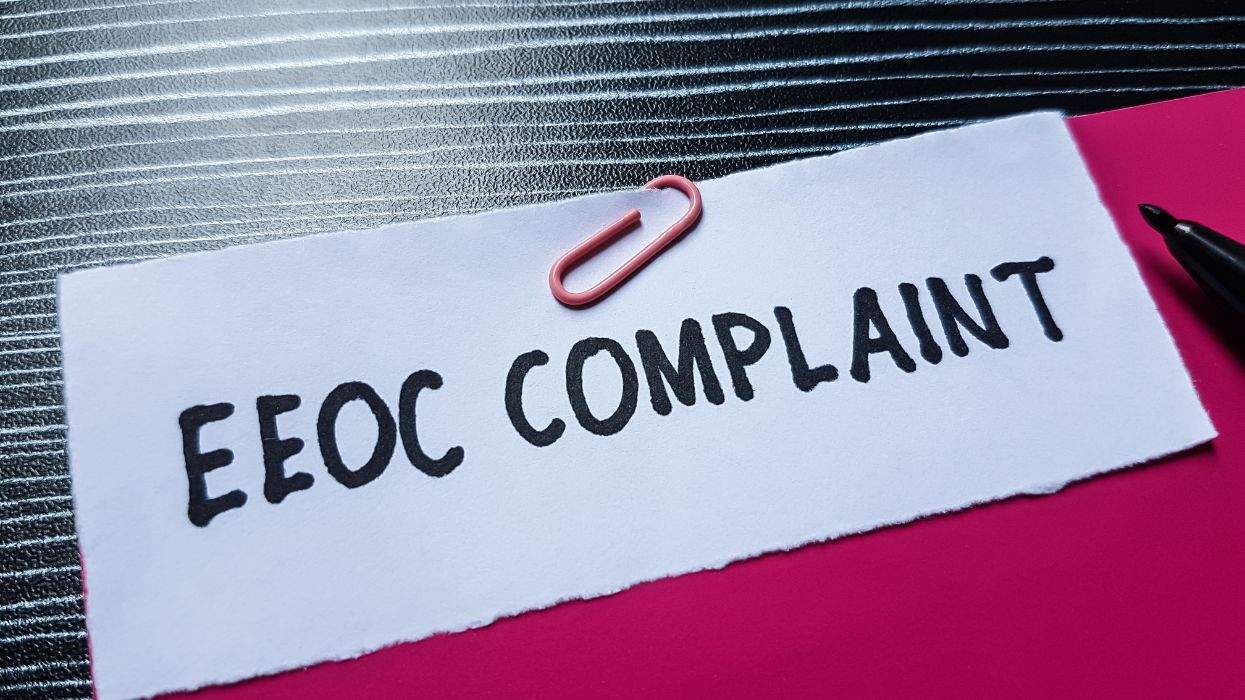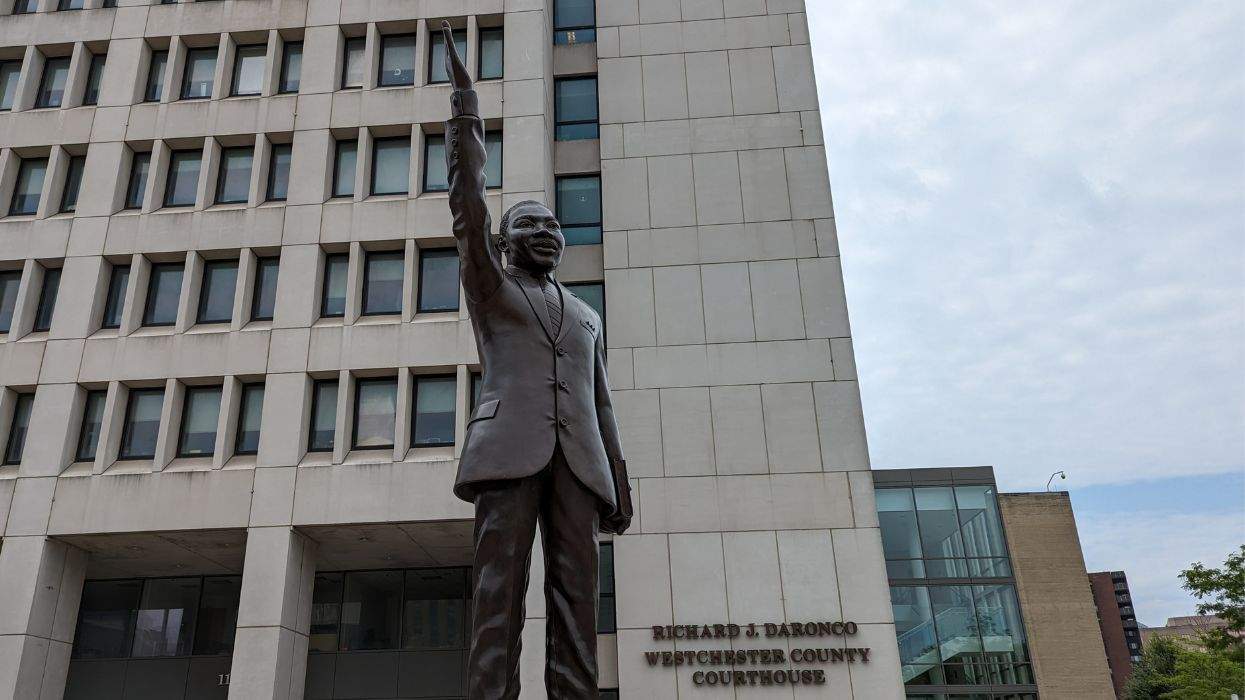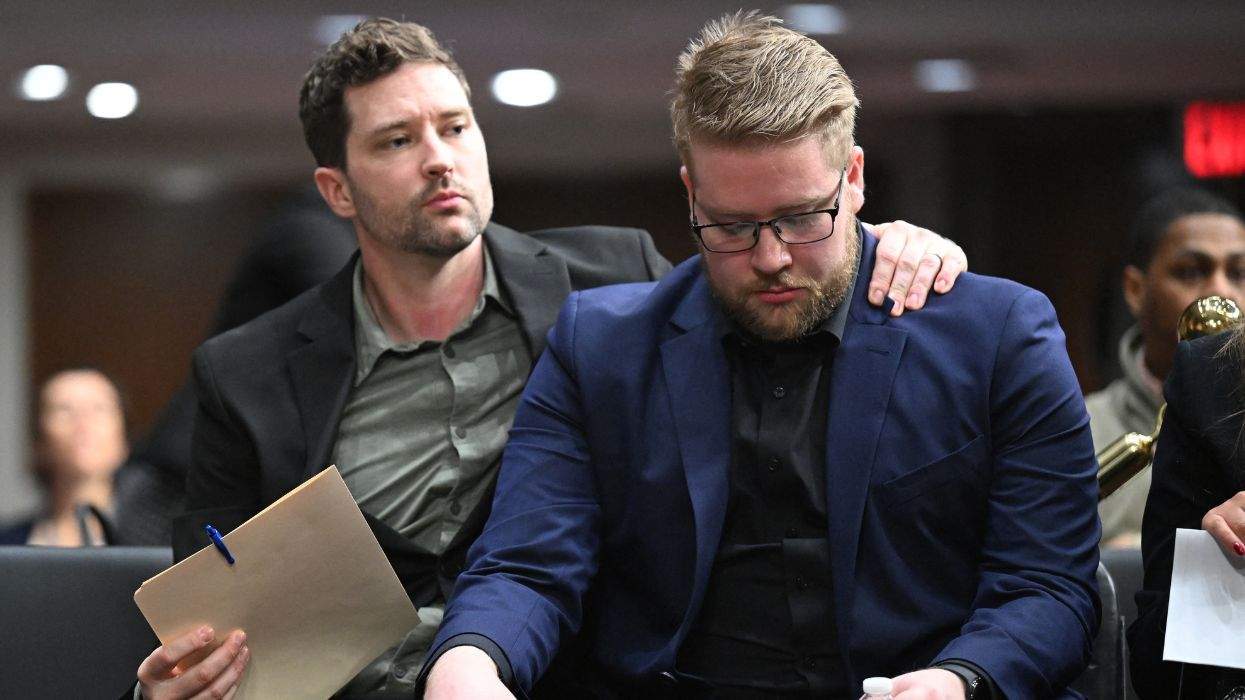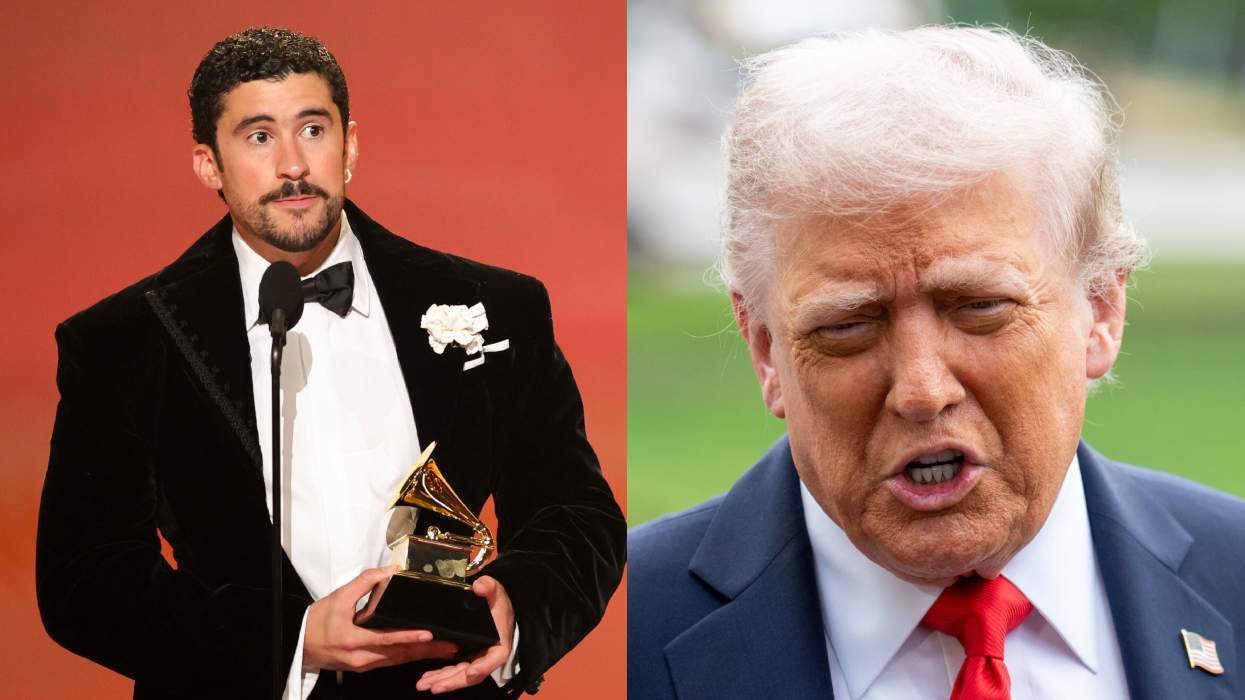Jumping into a volatile election-year debate on same-sex weddings, President Bush on Tuesday called a press conference for the sole purpose of announcing his support for a discriminatory constitutional amendment that would ban gay marriage nationwide, regardless of local laws, judicial rulings, or voter support. "After more than two centuries of American jurisprudence and millennia of human experience, a few judges and local authorities are presuming to change the most fundamental institution of civilization," the president said in urging Congress to approve such an amendment. "Their action has created confusion on an issue that requires clarity." Bush said he favors leaving the establishment of other civil partnership laws up to the states, but he did not specify what language he favors for his proposed amendment to forever strip rights away from gay and lesbian Americans. White House press secretary Scott McClellan said the president believes that the legislation for such an amendment submitted by Colorado representative Marilyn Musgrave meets Bush's principles--although the Musgrave amendment is worded specifically to allow courts to overturn civil unions, domestic partnerships, and any kind of equal access to benefits for same-sex couples as well as ban marriage. White House officials have said that support for Musgrave's proposed amendment has been unraveling in the Senate. Bush cast himself as a "compassionate conservative" during the 2000 presidential election, during which his running mate, now Vice President Dick Cheney, said the issue of marriage should be left to the states to decide. Bush's remarks on Tuesday suggested that states should have no such right and should all be brought in line with Bush's own definition of marriage, whatever each state's lawmakers and voters might support. While criticizing the judges of the Massachusetts supreme judicial court, San Francisco mayor Gavin Newsom, and county officials in New Mexico who have ruled that not allowing same-sex couples to receive marriage licenses is discrimination, Bush said that "unless action is taken, we can expect more arbitrary court decisions, more litigation, more defiance of the law by local officials, all of which adds to uncertainty." The president, who owes his job in part to a decision by a slim majority of the U.S. Supreme Court, said in recent months that "some activist judges and local officials have made an aggressive attempt to redefine marriage. After more than two centuries of American jurisprudence and millennia of human experience, a few judges and local authorities are presuming to change the most fundamental institution of civilization. Their actions have created confusion on an issue that requires clarity.... "On a matter of such importance, the voice of the people must be heard," Bush continued. "Activist courts have left the people with one recourse. If we're to prevent the meaning of marriage from being changed forever, our nation must enact a constitutional amendment to protect marriage in America. Decisive and democratic action is needed because attempts to redefine marriage in a single state or city could have serious consequences throughout the country." Bush called on Congress to "promptly pass and send to the states for ratification" an amendment that would specifically define marriage as the union of a "husband and wife." But he also said state legislatures should be left to define "legal arrangements other than marriage," suggesting that such an amendment would do nothing to stop states from allowing civil unions for same-sex couples--a suggestion not yet supported by any actual proposed language for the amendment. In his statement, Bush attempted to quash debate about the use of the U.S. Constitution to deny rights to certain citizens while granting those same rights to other citizens--something that document has not been used for since slavery was abolished in the 19th century and women were granted the right to vote in 1920. "Our government should respect every person and protect the institution of marriage," he said. "There is not a contradiction between these responsibilities." Bush also called for a civil debate on the controversial issue. "We should also conduct this difficult debate in a matter worthy of our country, without bitterness or anger. In all that lies ahead, let us match strong convictions with kindness and goodwill and decency." Criticism for Bush's call to amend the Constitution was immediate. The Log Cabin Republicans, a national group of gay and lesbian Republicans, accused Bush of "pandering to the radical right" and "writing discrimination into the Constitution." California Republican representatives David Dreier and Jerry Lewis said a constitutional amendment might not be necessary. "I will say that I'm not supportive of amending the Constitution on this issue," said Dreier, a cochairman of Bush's campaign in California in 2000. "I believe that this should go through the courts, and I think that we're at a point where it's not necessary." Lewis said, "At this moment I feel changing the Constitution should be a last resort on almost any issue." Other Republicans were more supportive of the president. House majority leader Tom DeLay (R-Texas) said he appreciates Bush's "moral leadership" on the issue, but he expressed caution about moving too quickly toward a constitutional solution and never directly supported one. "This is so important, we're not going to take a knee-jerk reaction to this," DeLay said. "We are going to look at our options, and we are going to be deliberative about what solutions we may suggest."
Search
AI Powered
Human content,
AI powered search.
Latest Stories
Stay informed on important LGBTQ+ news.
Sign up for our email newsletter.
@ 2026 Equal Entertainment LLC.
All rights reserved
All rights reserved
By continuing to use our site, you agree to our Privacy Policy and Terms of Use.
The Latest
More For You
Most Popular
@ 2026 Equal Entertainment LLC. All Rights reserved















